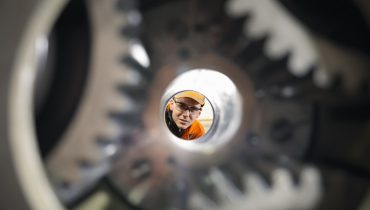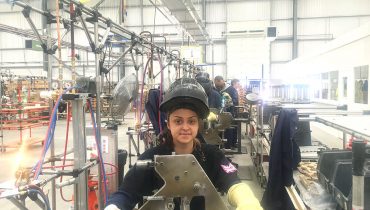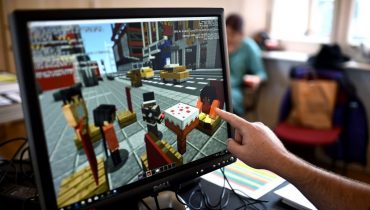 What’s the job?
What’s the job?
Automotive engineer.
Who would I be working for?
Companies like BP. They create and develop cleaner, more efficient fuels and lubricants to power and maintain modern car engines. Automotive engineers also work for companies who design and develop new vehicles.
What do they do?
An automotive engineer could end up working on almost any part of the design, development and manufacturing of a motor vehicle, but at BP you would focus on developing and testing new fuels and lubricants.
What sort of work is involved?
It depends which area you specialise in, so you probably wouldn’t be doing all of these things, but here’s an idea of the type of jobs you could be doing:
- Working with fuels and lubricants to improve engine performance and reduce harmful emissions.
- Working on new electrical systems to improve a car’s performance and handling.
- Using the physics of air flow to improve a car’s aerodynamic features.
- Creating computer models to test out your ideas.
- Building prototypes to see how they perform in the real world.
- Adapting (or building from scratch) the machines that will make the parts for a new design.
What skills do I need?
- Problem solving.
- Good communication skills, so that you can work within a team or give presentations to colleagues.
- Excellent technical skills and maths ability.
- A good knowledge of IT and the ability to adapt to new software and hardware.
- The ability to analyse data and understand what it tells you about the system you’re studying.
- Good organisational and planning skills.
What qualifications do I need?
It varies by company, but you would usually need an engineering degree. To become an automotive engineer at BP, you’d need a master’s degree (or equivalent) in something like automotive, mechanical or aerospace engineering.
Some companies, including BP, may take people on as technicians and apprentices if they have an entry-level qualification, then give you extra training on the job so that you can eventually get an engineering qualification.
What hours would I work?
Generally speaking, 9-5 from Monday-Friday, although this could vary, especially if you have a deadline coming up.
Where would I work?
Depending on what you’re working on, automotive engineers could be based in an office, research lab or factory, so you could end up just about anywhere in the UK (or world!).
How much would I get paid?
A starting salary could be around £20-25,000. With more experience and further qualifications, this could increase over the years to perhaps £80,000, but could vary a lot depending on your speciality and the company you work for.
Can I do work experience?
Large engineering companies often take people on for work experience from the age of 14 upwards. BP offers work experience placements at its major sites in the UK.
How might the job change in the future?
Engineering is always changing and always needs to stay ahead of trends and new technology. In fact, engineers are the people who invent new technology, so no engineering job will ever stay the same. Ways of designing, manufacturing and testing equipment are improving all the time, so engineers don’t just accept change – they make it happen!






























